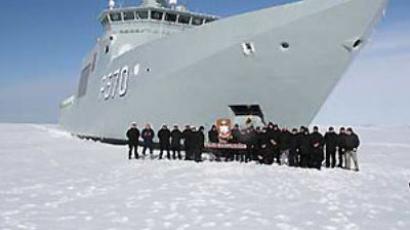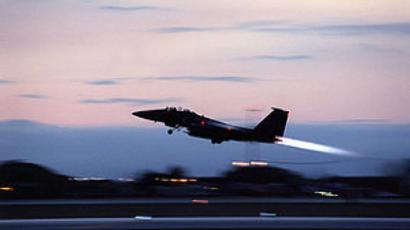U.S. military planes take to Russian skies
American military planes will soon be seen above Russia after a new transit agreement with the U.S. came into force. It allows America to airlift military equipment to Afghanistan via Russian airspace.
Two months after President Dmitry Medvedev and his U.S. counterpart Barack Obama pledged to press the reset button, some of those plans are coming to life.
Washington is now allowed to send military aircraft to Afghanistan through Russia’s airspace. More than four thousand flights per year are scheduled to deliver troops and various types of cargo, including military hardware.
Officials on both sides of the ocean have called it an important step, which proves that Moscow and Washington can cooperate in spheres of mutual interest.
Many analysts say the current Pakistani transit route Washington uses is dangerous and unreliable, while Moscow gets to add some color to its relations with the West without having to send troops to Afghanistan.
“Russia will not participate in the Afghan war, because this is a war that has to be ended through negotiation,” said Richard Sakwa of the University of Kent. “Russia is maintaining its independence, but on a basis of its sovereign status, it is cooperating with Western powers.”
Opium is a major cash crop in Afghanistan, which is exported in the form of heroin – much of which goes into Russia. It is one major reason why Moscow is keen for the foreign troops to gain greater control over the country.
Meanwhile, according to the Washington Post, the agreement also lets the U.S. save more than $130 million per year on fuel and transport – so the deal appears to be a win-win situation for both sides.














